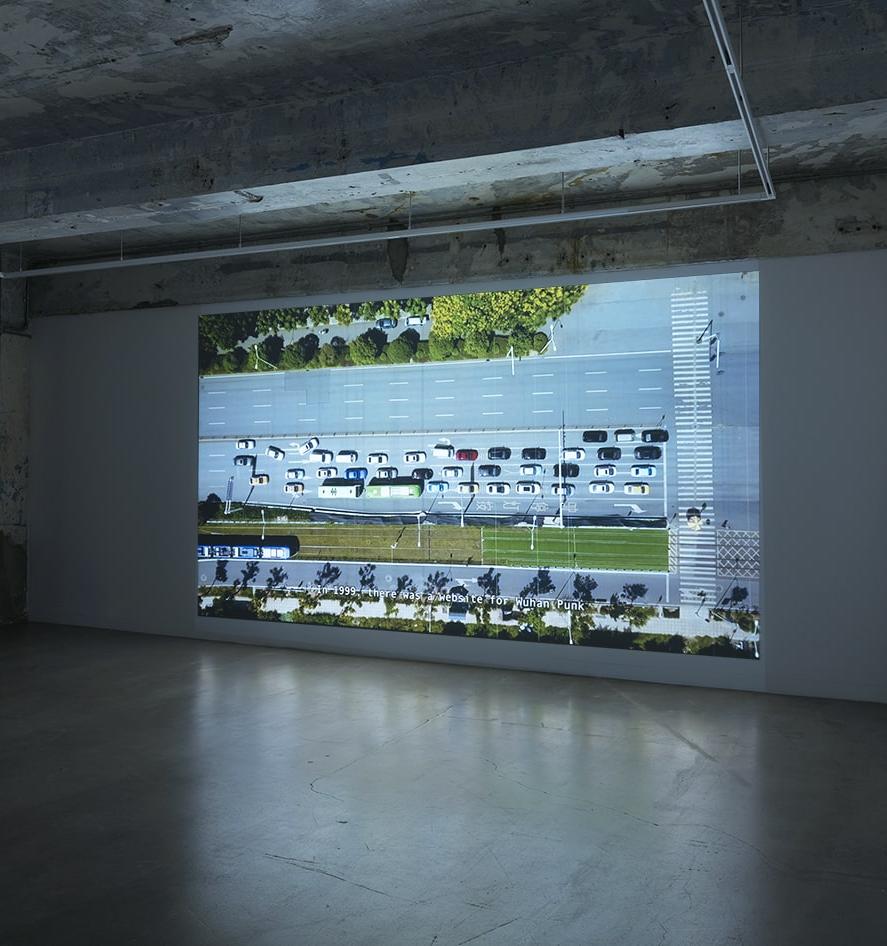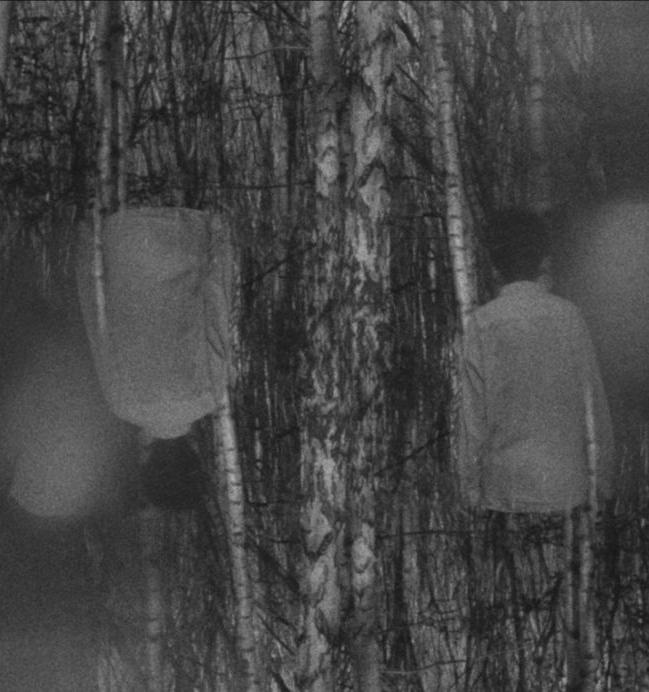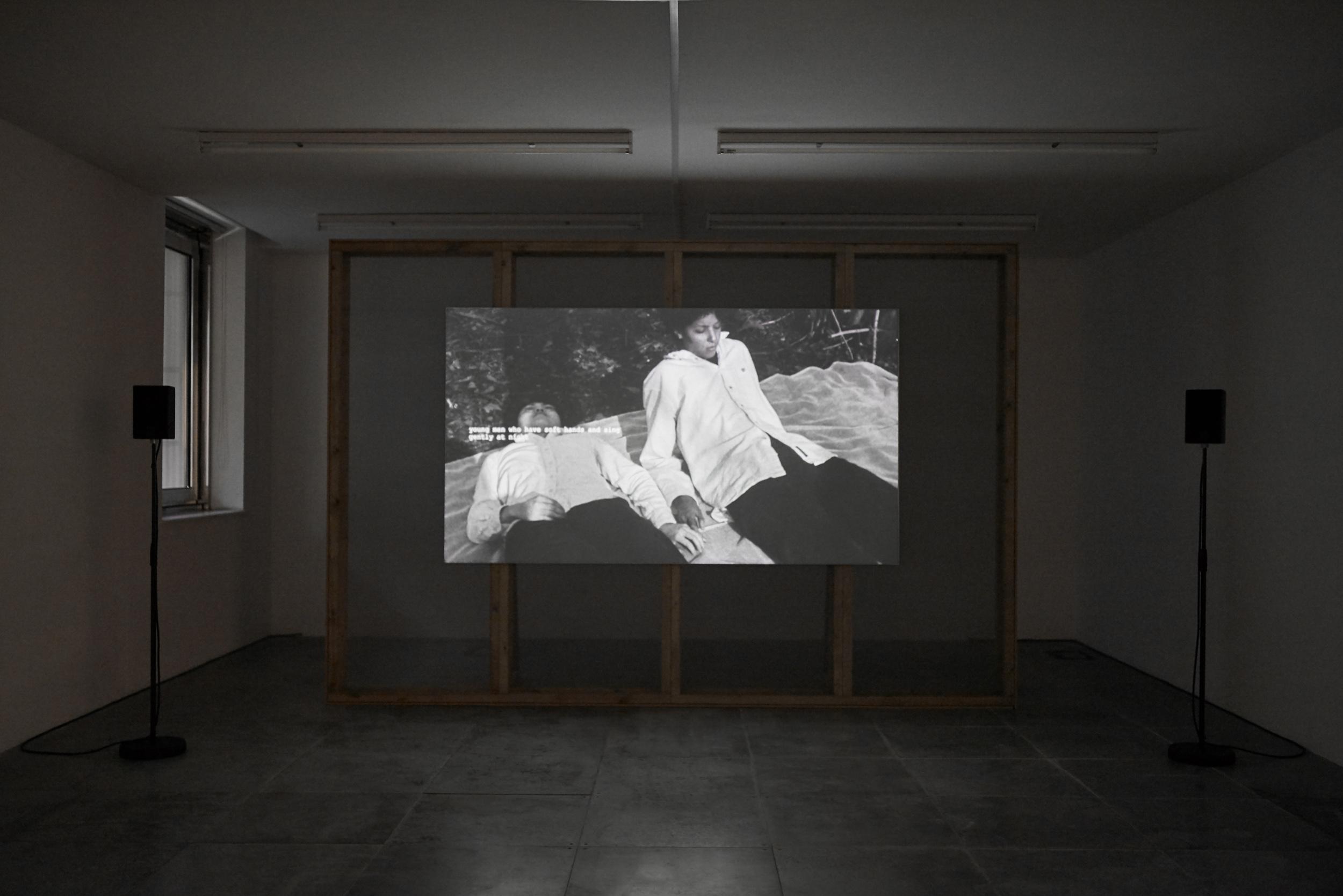
exhibitionChris Zhongtian YuanAll Trace Is Gone, No Clamour for a Kiss08.07—11.08.202256 Conduit Street
11:00am—6:00pm56 Conduit Street
Developed during their four-month residency at V.O Curations, Chris Zhongtian Yuan’s first solo show in the UK will feature a new film, drawing, and a series of ceramic works. Through sung words, foregrounded ghosts, softness as empowerment, and imagined dialogues as corporeal connections, Yuan explores the tenderness and cruelty of migration, drawing from one’s relations to others, to faraway places, to past and future.
The film features footage shot on 16mm film camera, animation and archival materials. Structured as an intimate conversation between two individuals, it is divided into five chapters: Mother; A Love Story; The Tower; Unknown Land; Haunted Island. The dialogue between the two characters appears only on screen, as the film is led by a sonic narrative – a score composed for the work by British trumpeter Kevin G. Davy.
The artist extends the visual language used in the film through ceramic sculptures and large-scale drawing that are composed of the film’s script and elements of animation. All the works explore the correlation of identity and sound in the history of migrations, from both personal and historical perspectives.
All Trace Is Gone, No Clamour for a Kiss is co-commissioned by FLAMIN and V.O Curations; supported through FLAMIN Fellowship 2021-22 and V.O Curations Autumn 2021 Residency; additional production support from not/nowhere; supported using public funding by the National Lottery through Arts Council England.

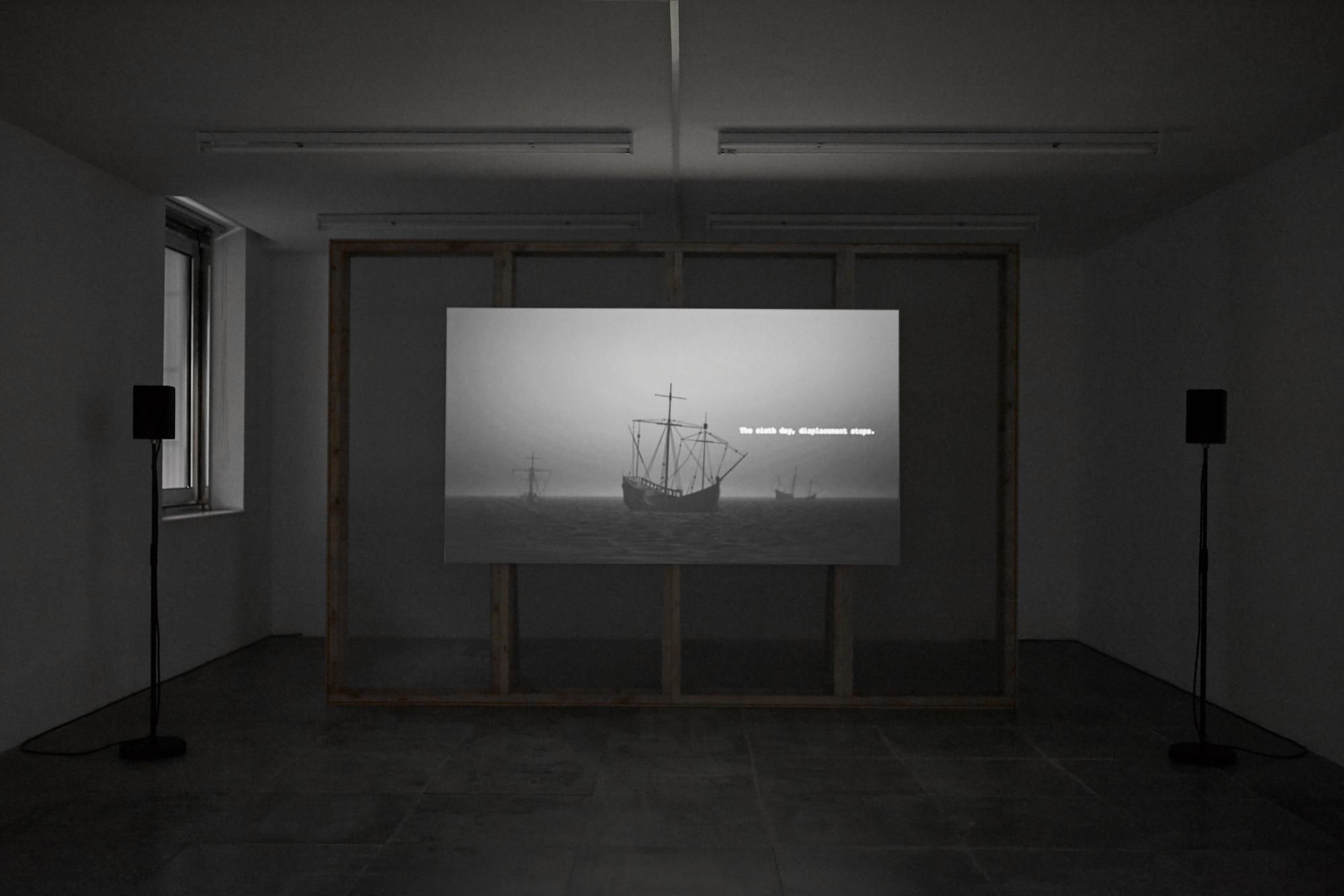
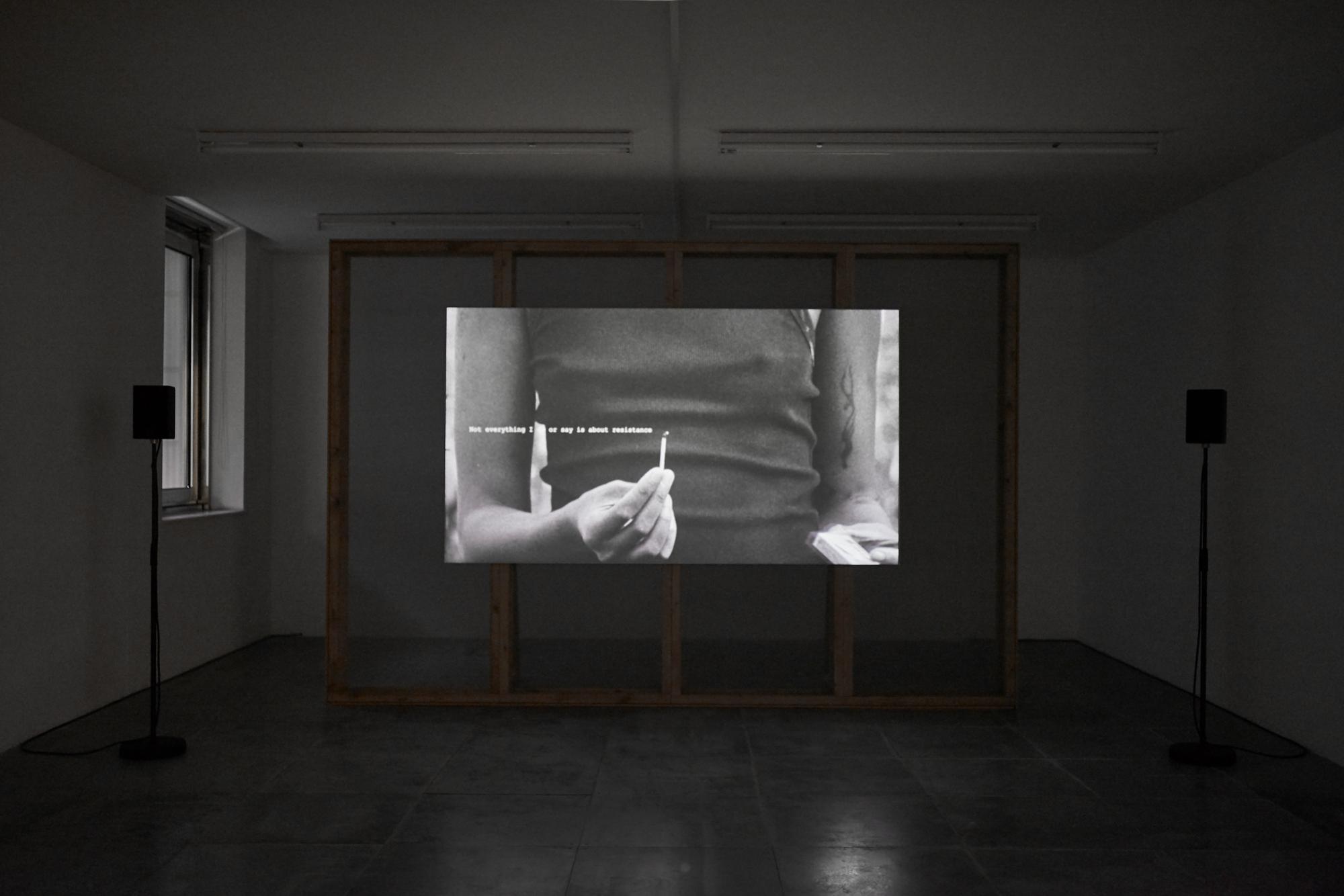
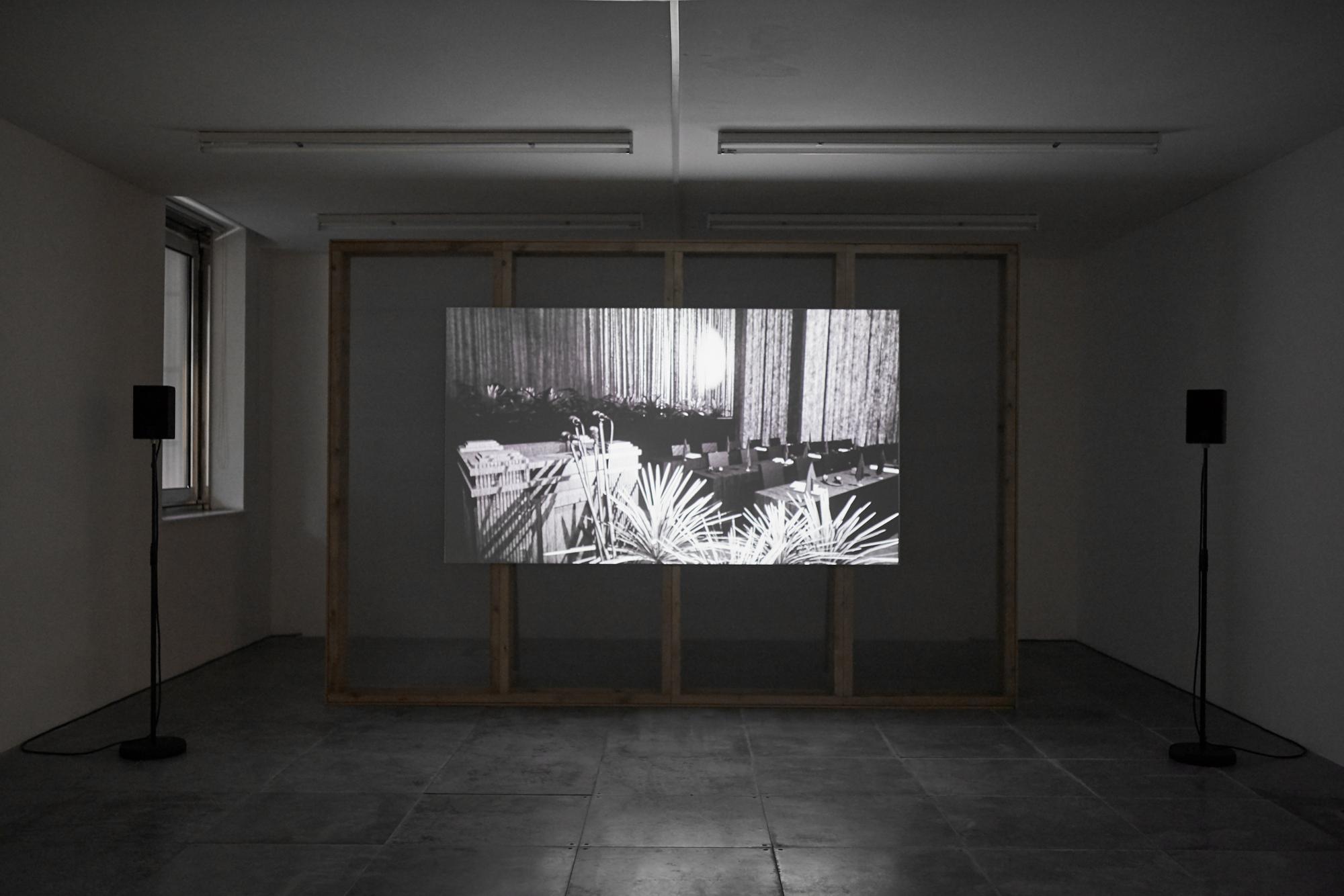
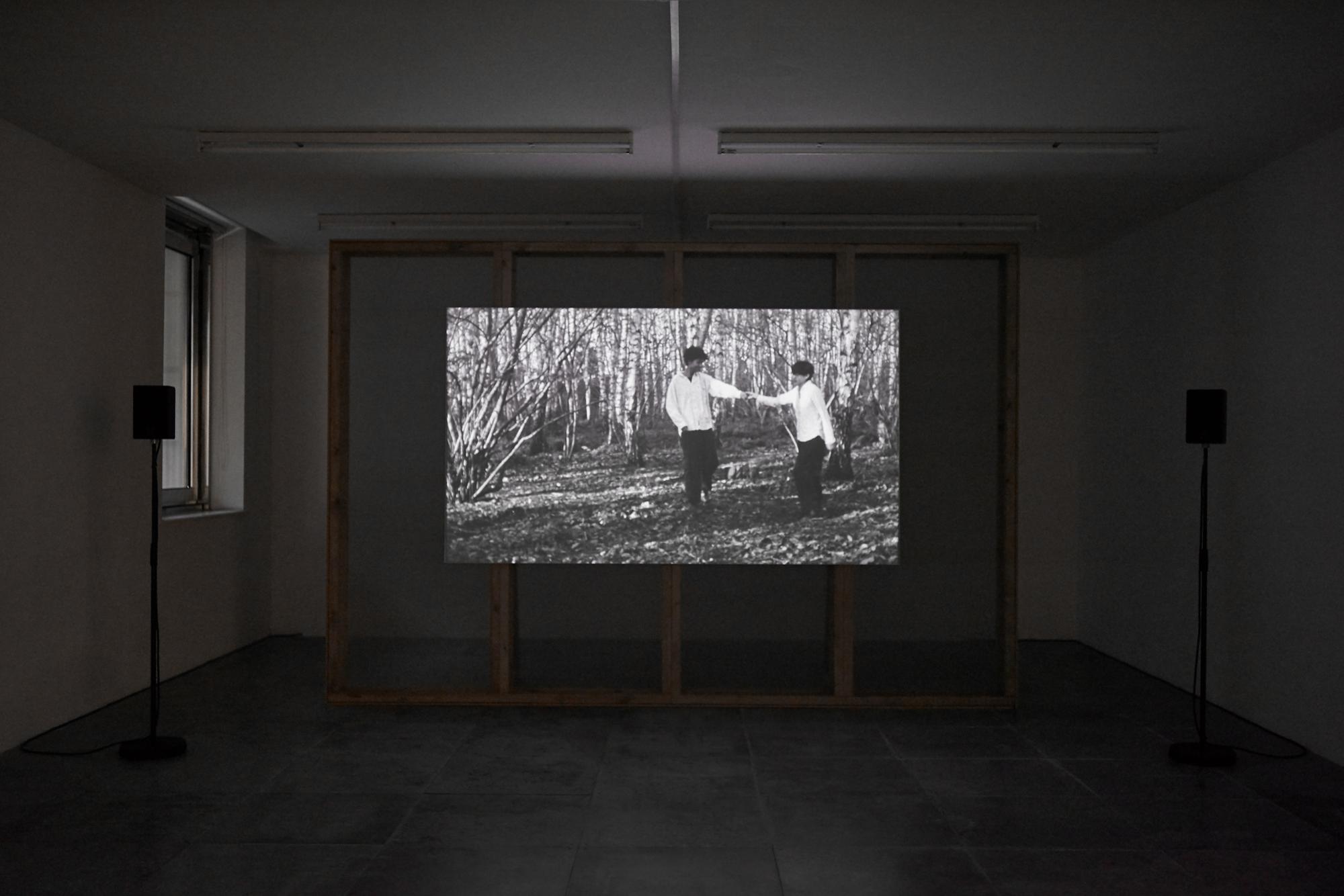
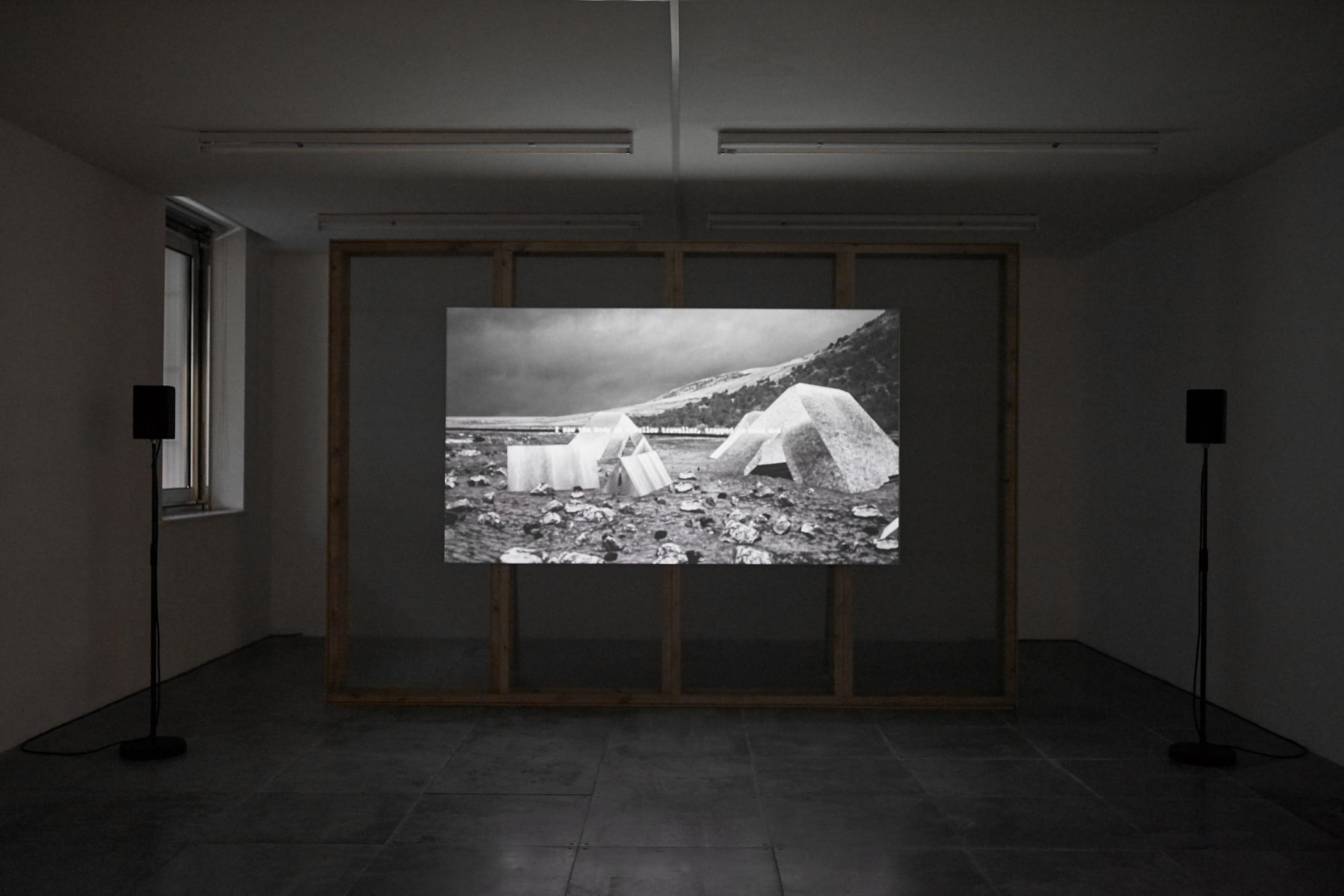
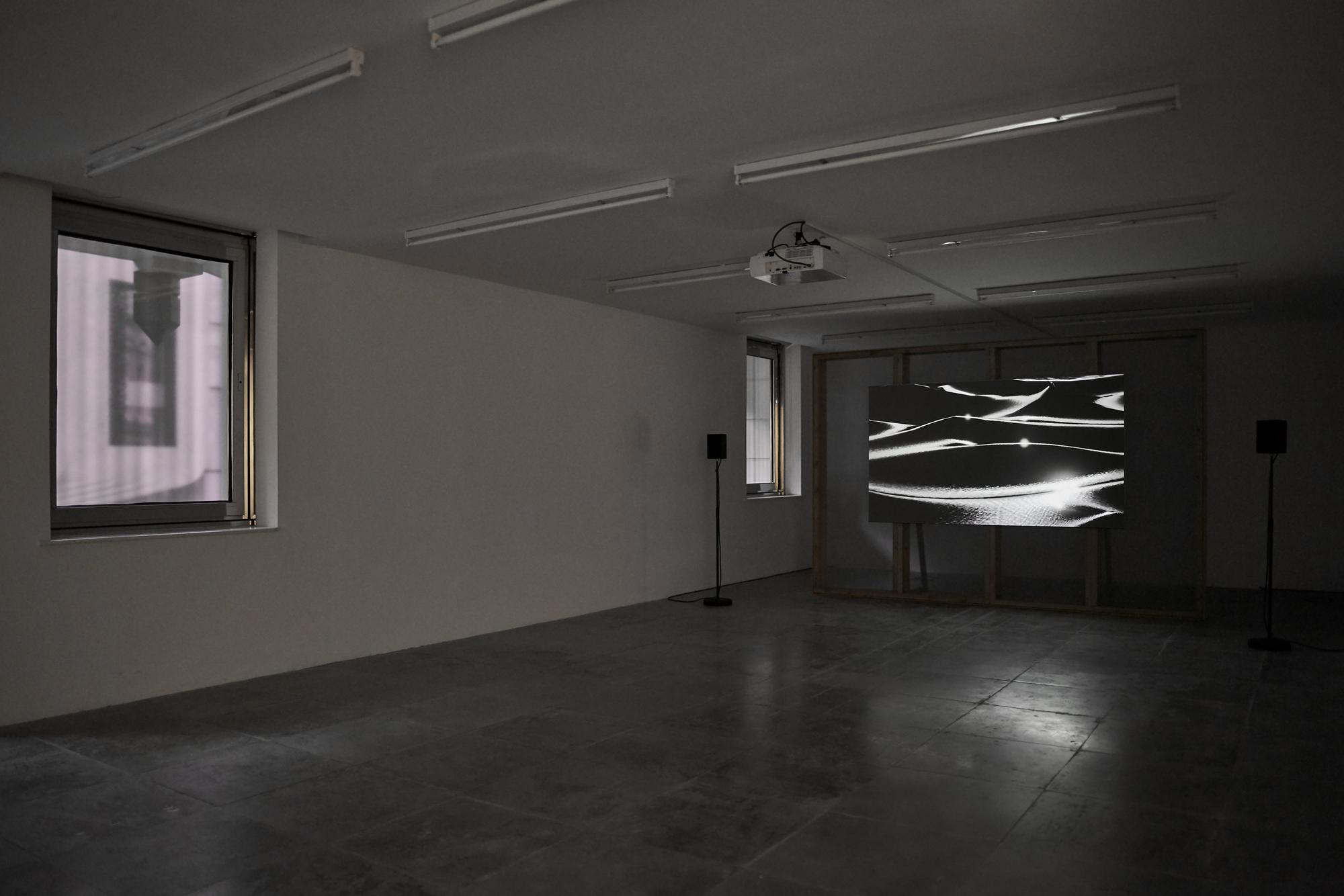
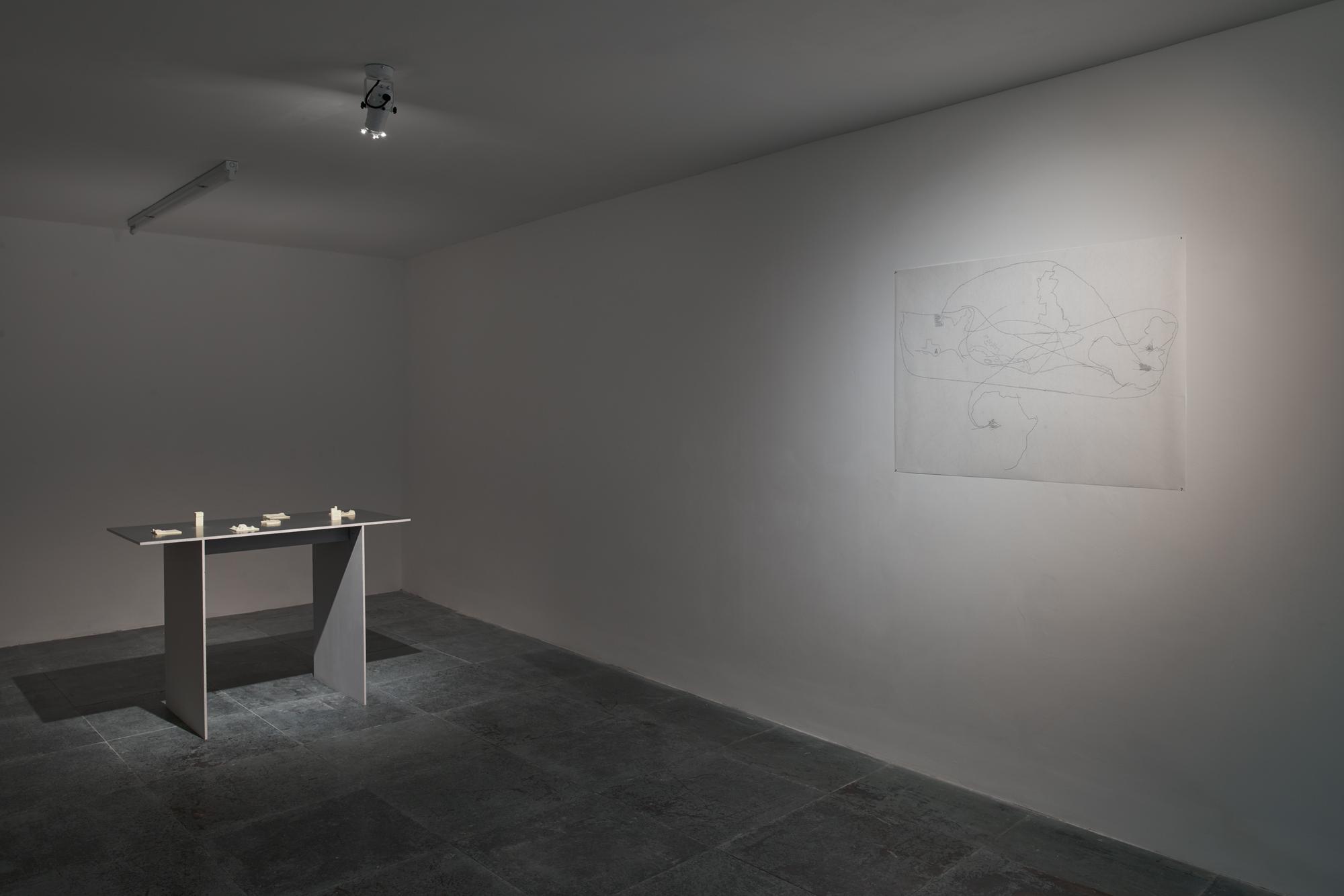
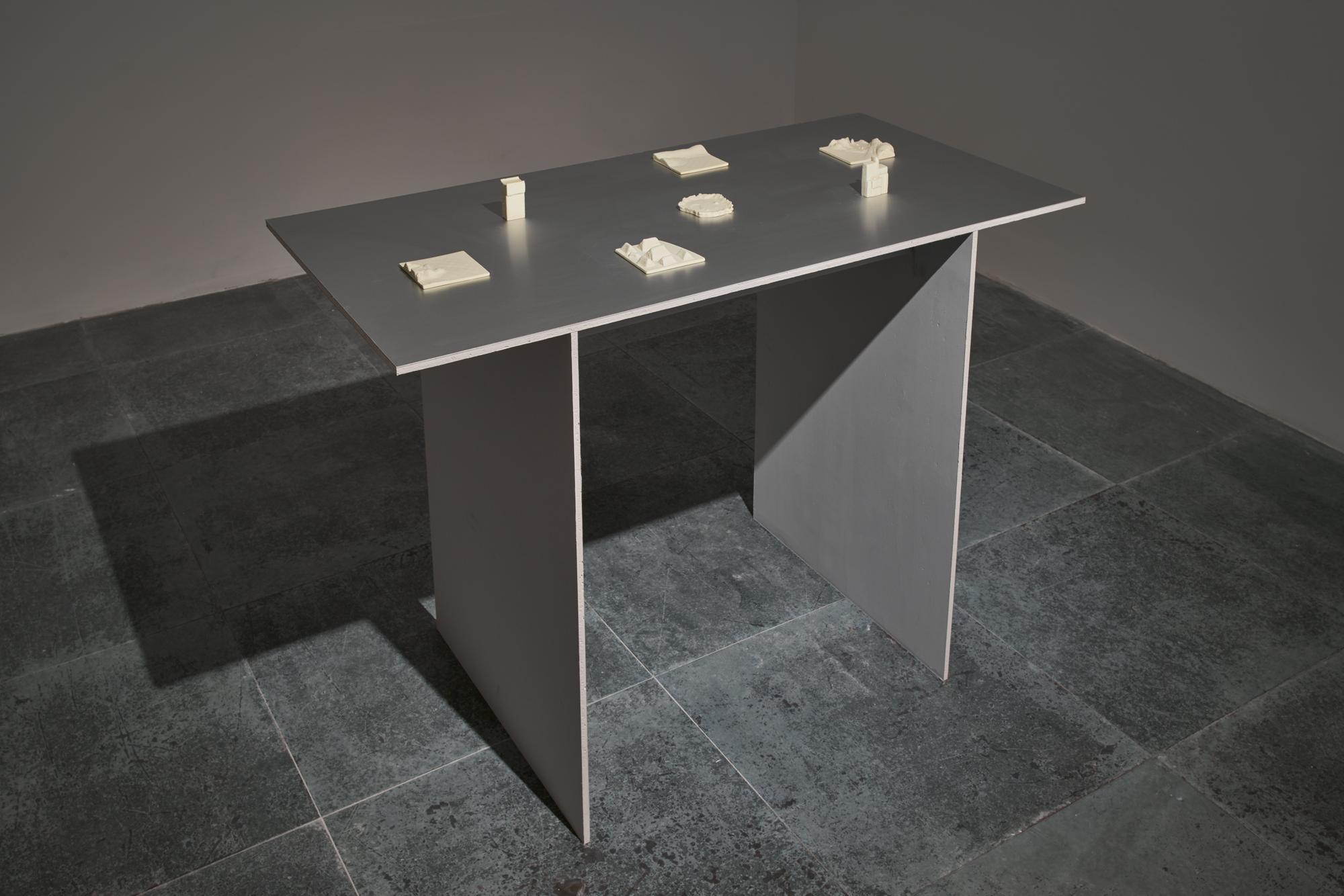
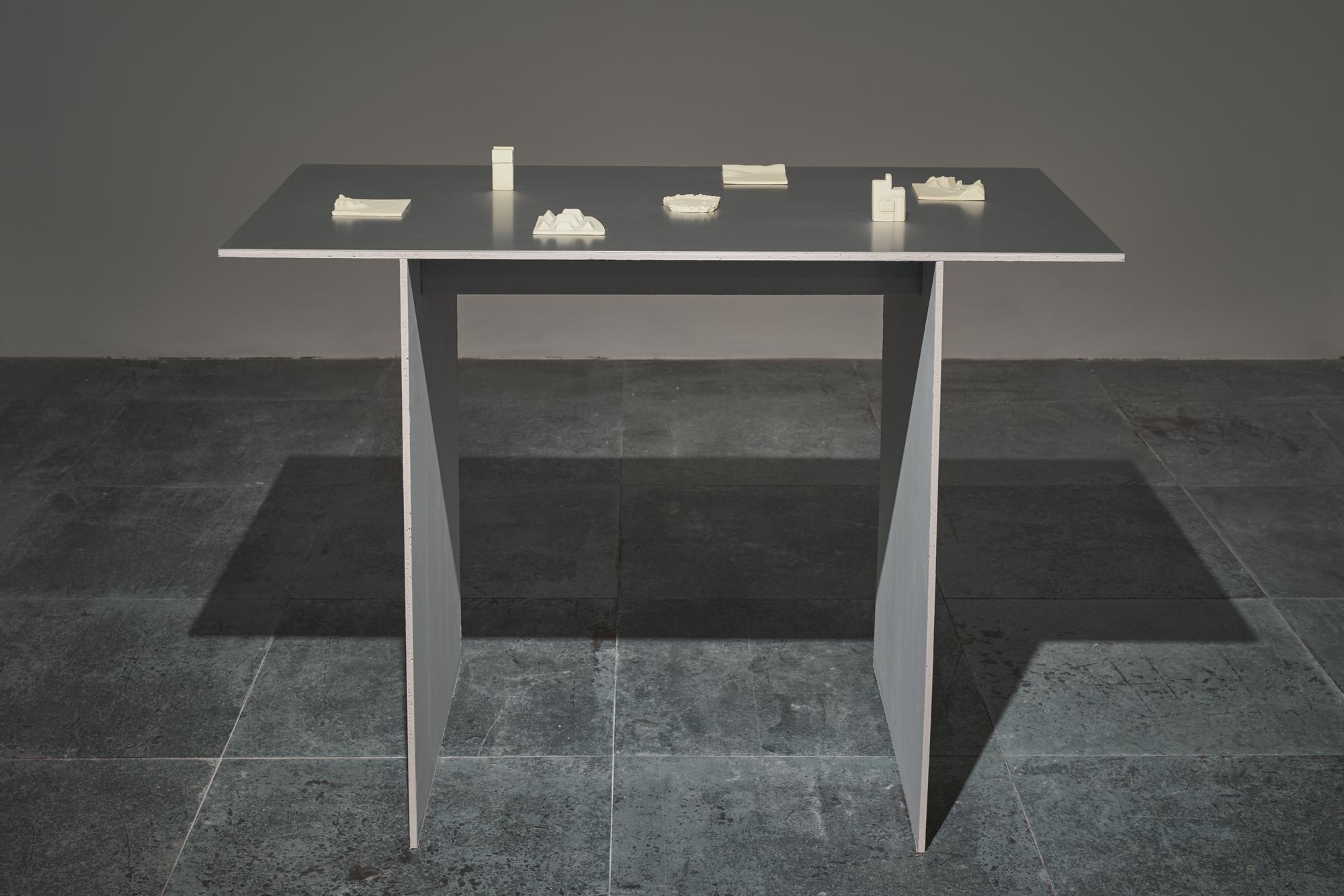
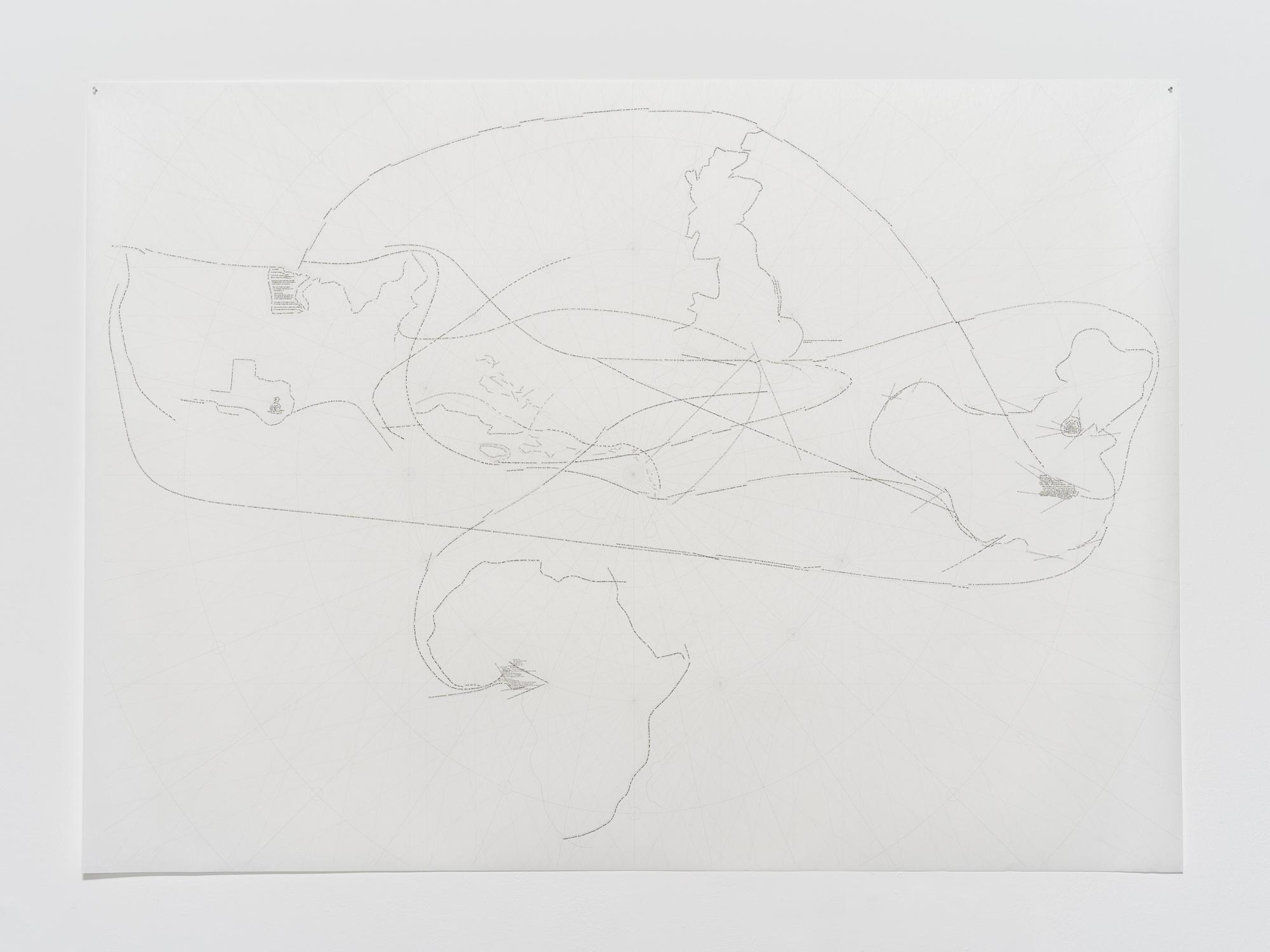
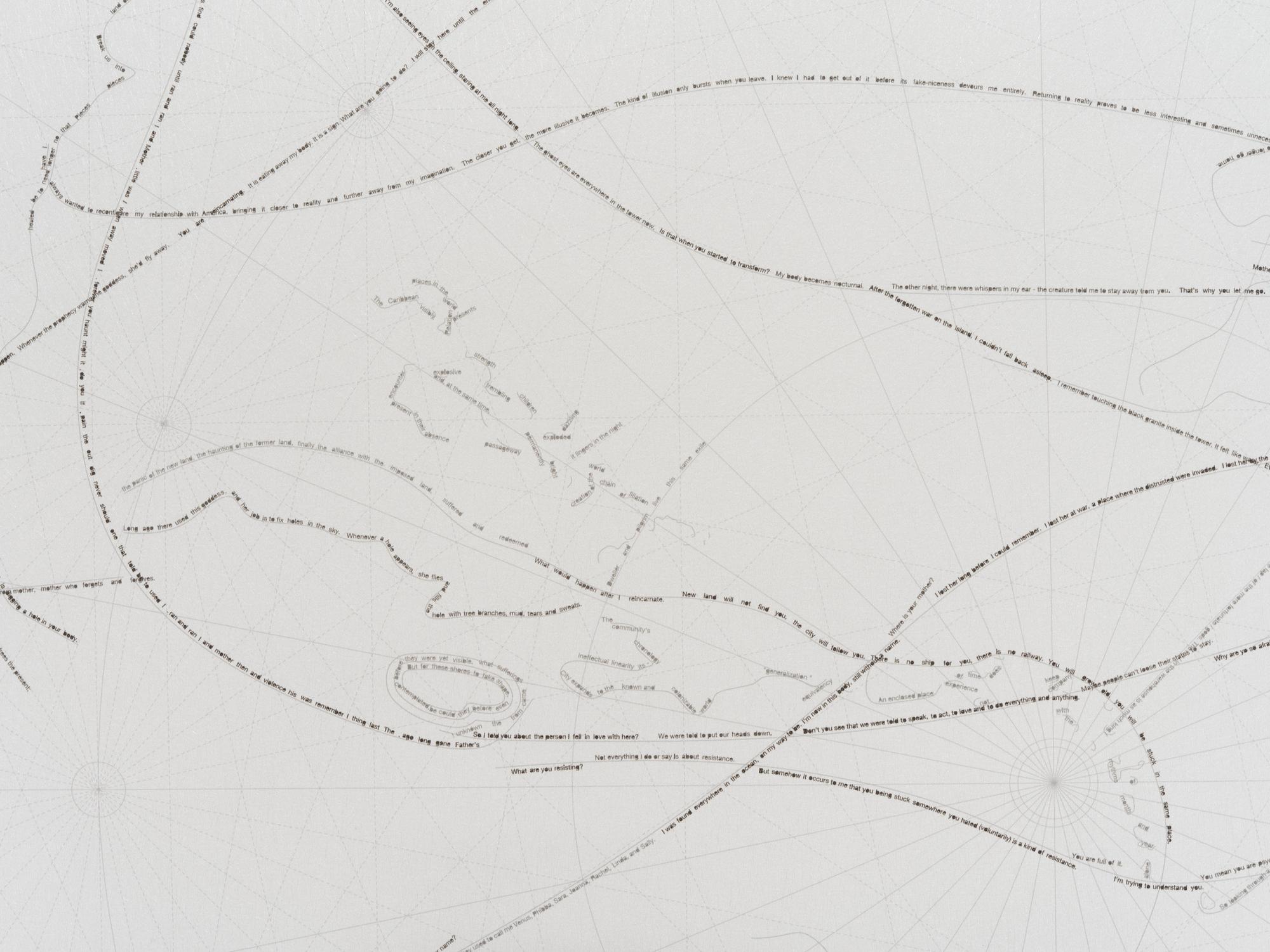
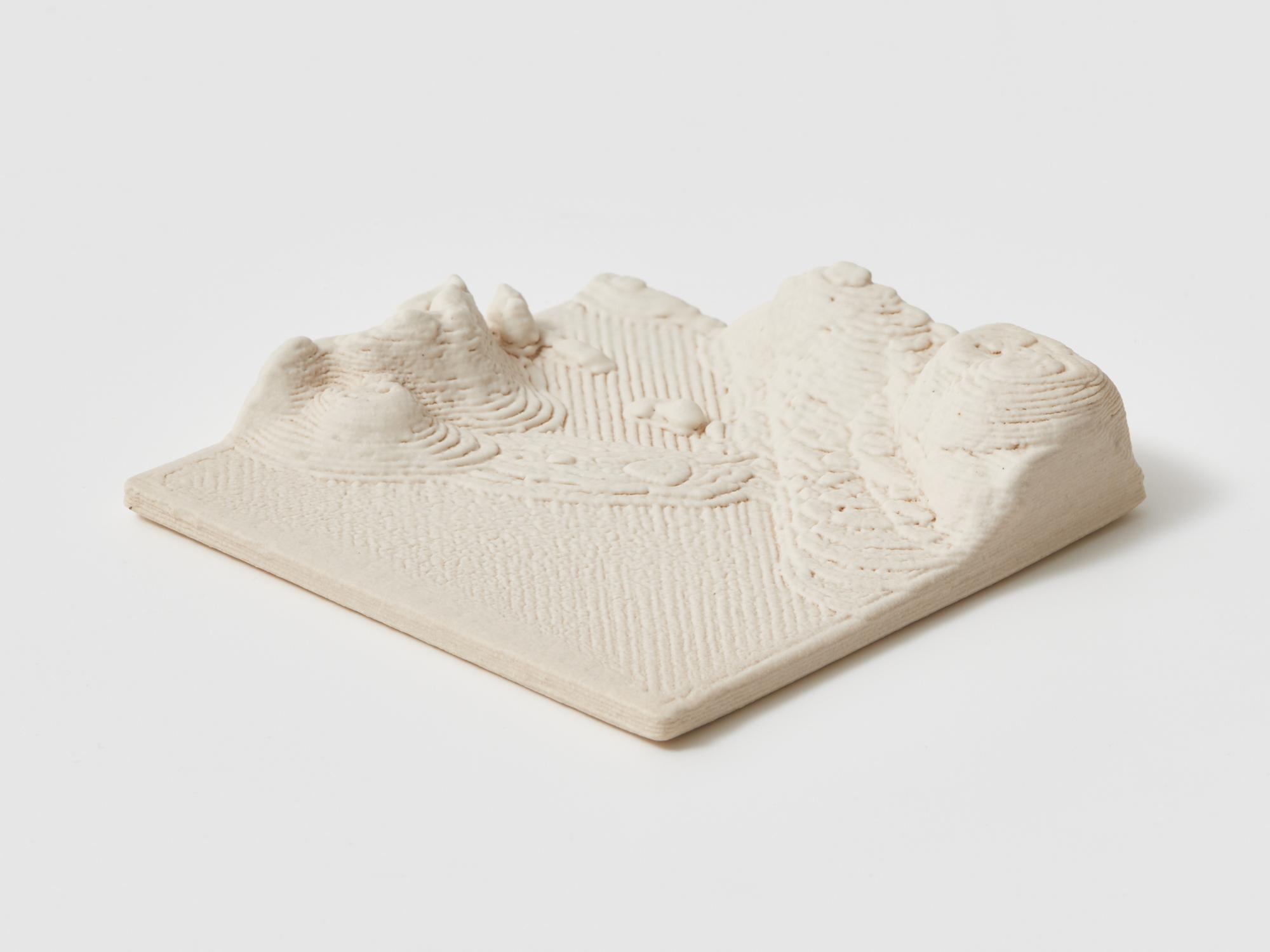
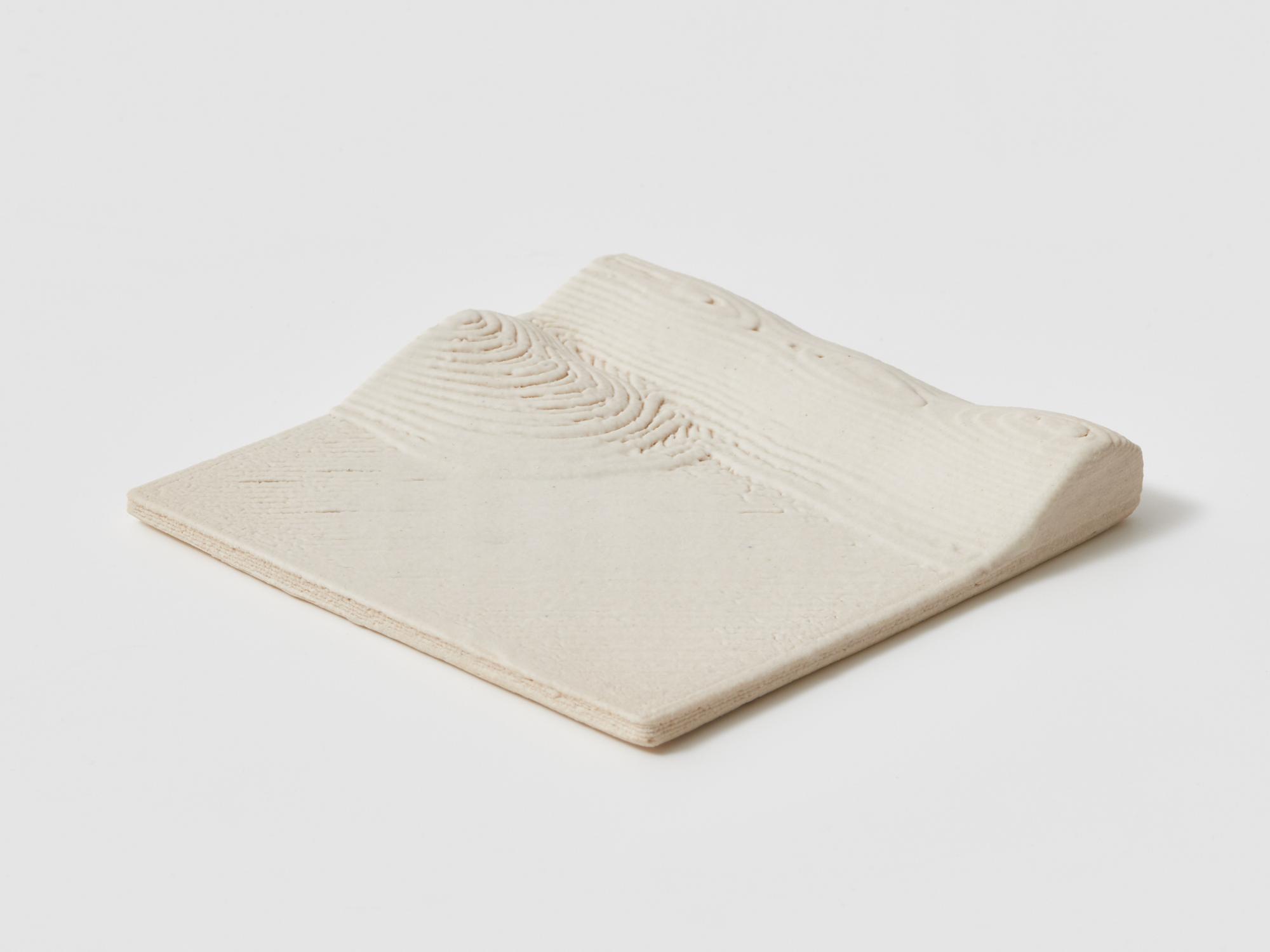
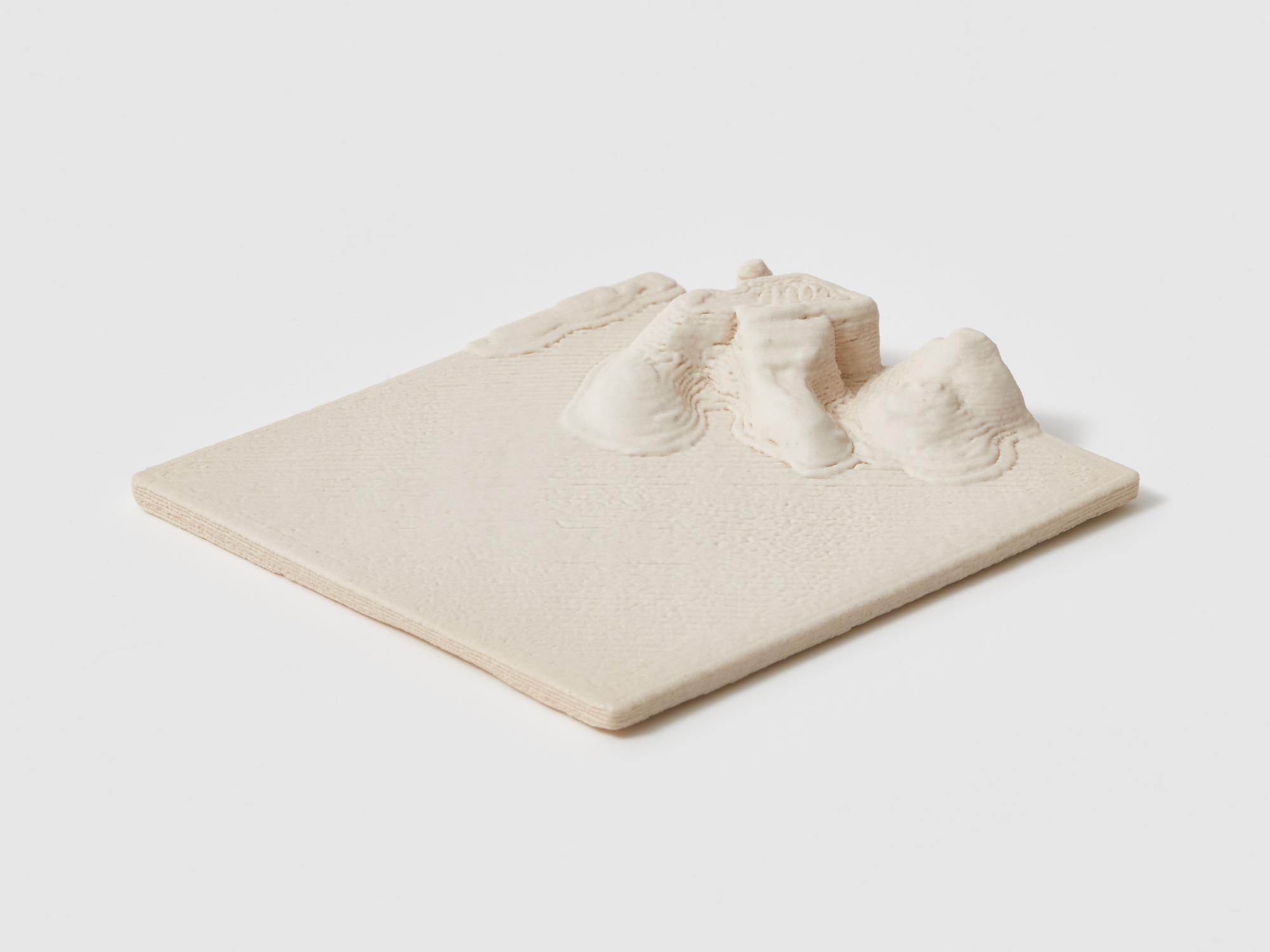
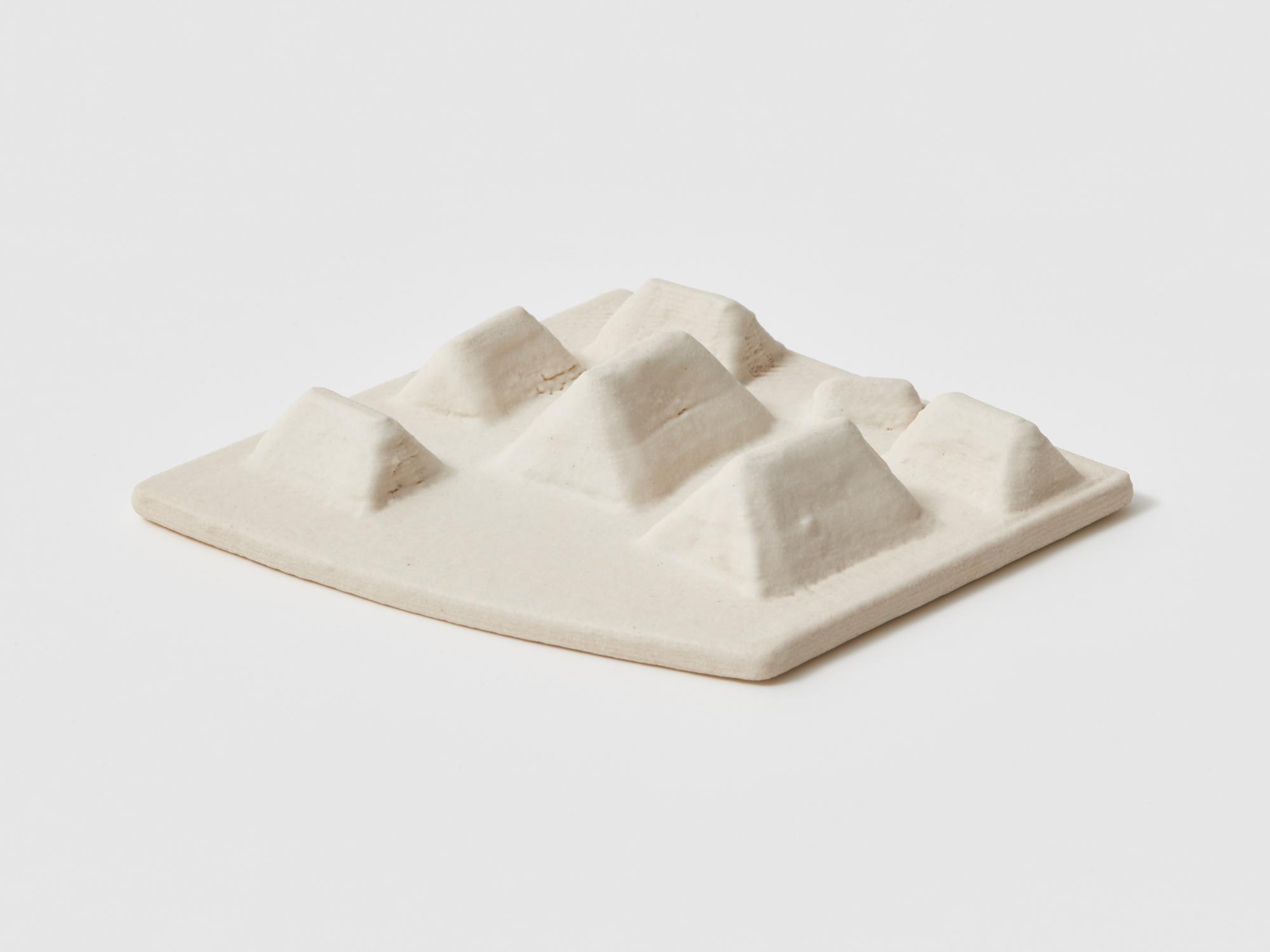
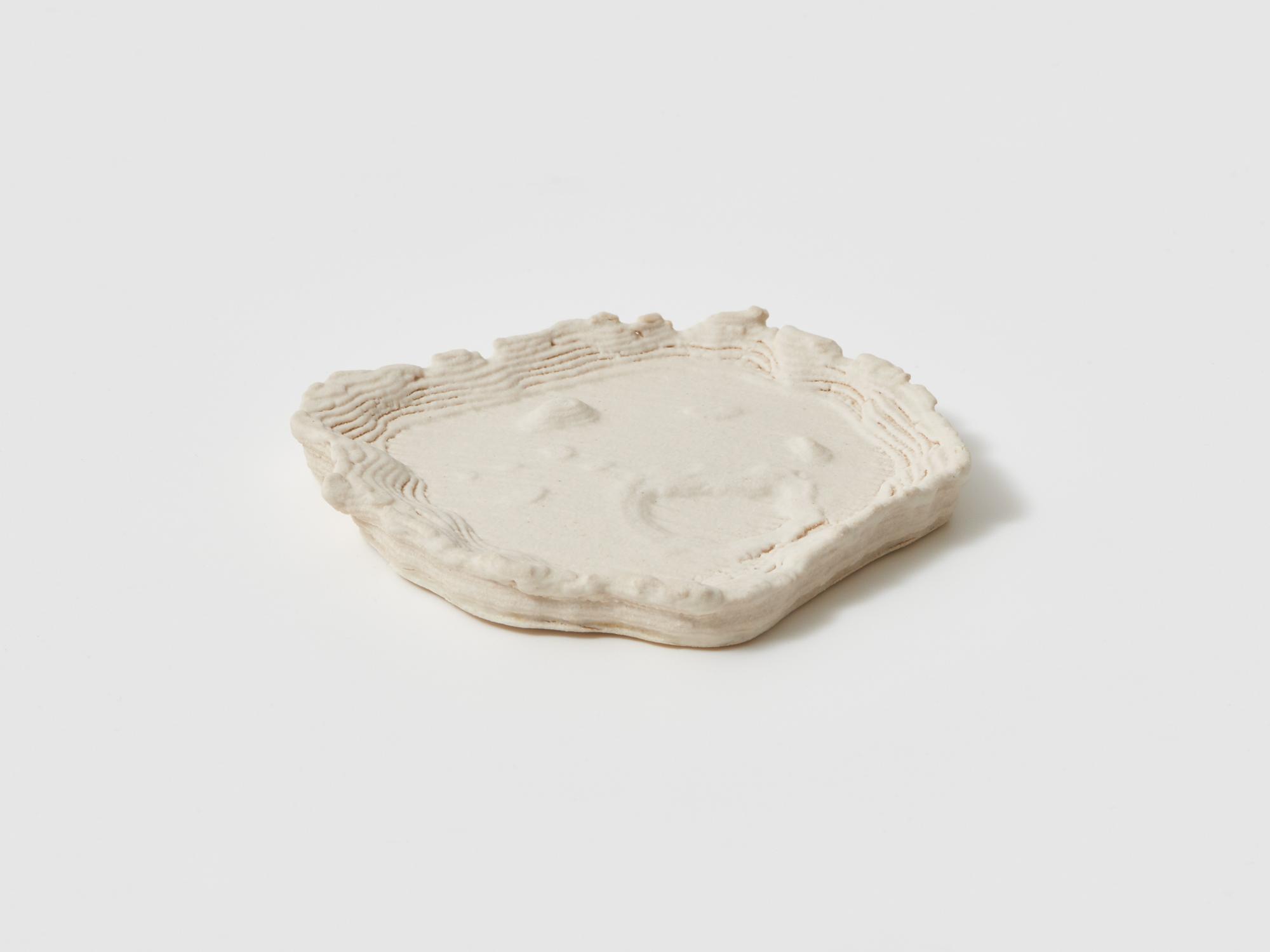
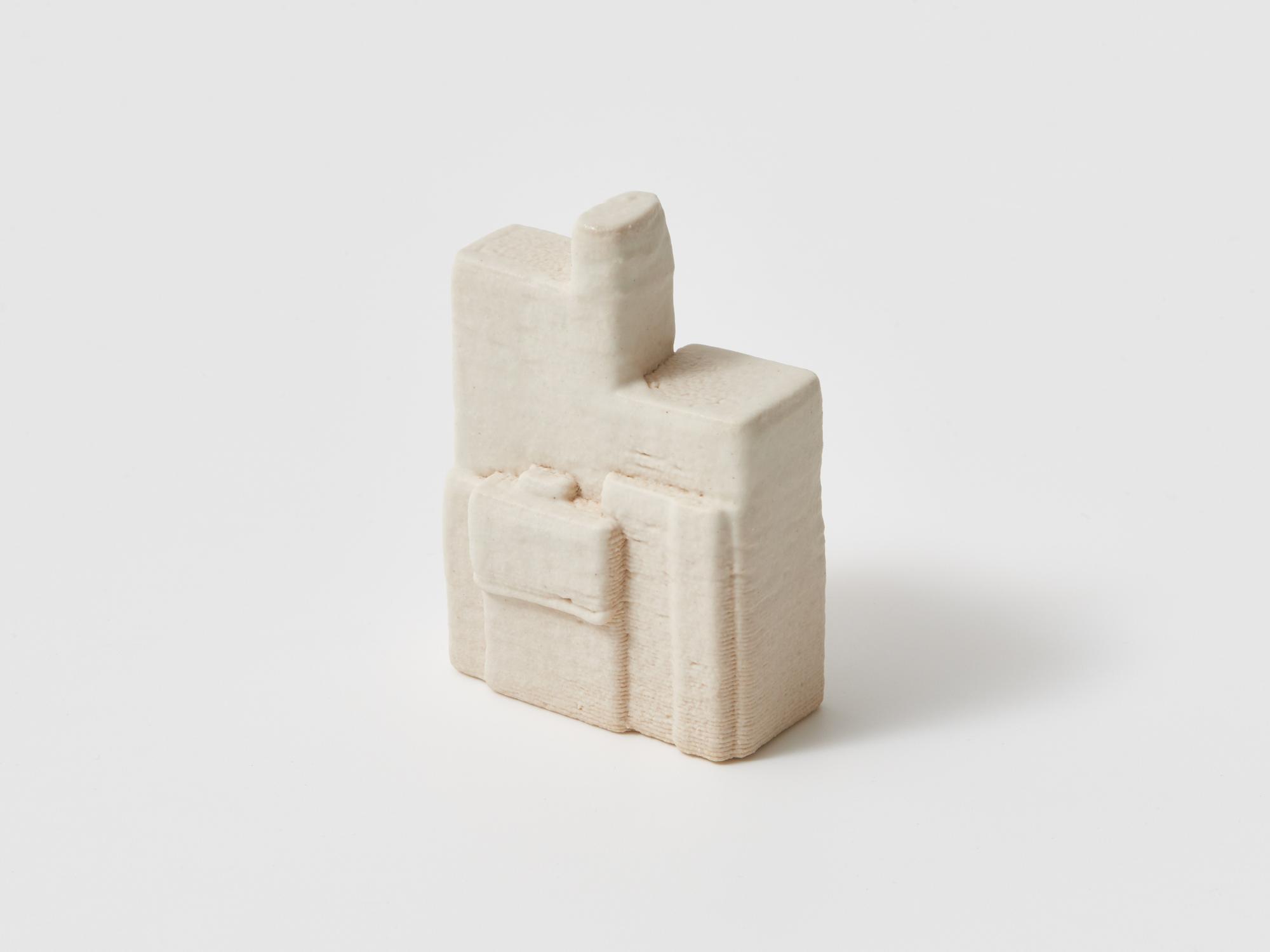


















Ocean Commotion
Qu Chang (QC): In All Trace Is Gone, No Clamour for a Kiss, dialogues abound. They are fragmented and light, floating softly on the screen, in the air, along the ocean current. One finds them between the archives and the CGIs, between the two characters in a misty forest, between trumpets and drum rolls, between oneself and one’s ghosts. They invoke other words, lines, and songs scattered in memories and dreams, all of which gets quickly absorbed into the amorphous body of the dialogues, just like bodies of the sea.
I came from the sea, across the ocean is my home, I have been moving for days.
QC: Since the 15th century, maritime expeditions have weaved threads of movement and displacement between continents. Minerals, species, land, and people are severed, traded, abducted, pushed off shores. Their stories find no refuge but the billowing of the waves. There are other times, when they resort to the sea for hope and survival, their memories have no home but the depth of the ocean. What would the ocean sound like as an audio archive? What would it taste like as a bowl of soup?
CZY (Chris Zhongtian Yuan): The ocean presents a thick landscape. She carries weighty memories; she takes people to faraway places. She is enormous, brimming with love and ruthlessness, compassion and engulfment. For a long time, my work has been closely connected to the African continent and the Caribbean. Personal and collective relations, both historical and present, far and near, tender and violent, haunt me continuously. As a member of the diaspora, I wonder how could one make sense of their relationships to faraway places, relations to each other, and what these relations sound like.
Derek Walcott (DW): Once the meridian of European civilisation has been crossed, according to the theory, we have entered a mirror where there can only be simulations of self-discovery…the mirror of the sea, the plain, the desert, or the sky…But the truth is that there is something else going on…Its surface may be littered with the despairs of broken systems and of failed experiments, that the river, stilled, may reflect, mirror, mimic other images, but that is not its depth.
QC: The sea appears to be a dark, undulating piece of silk. At first glance, it is a mirror reflecting the linear history of civilisation and its expansion. But when you move into it, you’ll feel its thick, soft body knitted by the crisscross stories of different time-space, of despairs and hopes.
DW: In the Caribbean, history is irrelevant…it has never mattered, what has mattered is the loss of history, the amnesia of the races, what has become necessary is imagination, imagination as necessity, as invention…(for instance) the impromptu elements of the calypso.
CZY: My collaborations with Jamaican-British trumpet musician Kevin G. Davy, and Nigerian multidisciplinary artist and DJ, Olukemi Lijadu, Chinese artist Huiqi He, and Barbadian-British artist Ella Frost, all begin with a series of conversations revolving around our lives and histories. We exchange love tales, we share our vulnerabilities, we confront troubled past and present. We talk while playing musical instruments, singing poems out loud, touching leaves in a faraway forest. Our dialogues are integrated into the music, just like improvisation in jazz, the transience of ghost songs.
I chose to remember the erasure and forget the process of it all.
All traces are gone, no clamour for a kiss.
CZY: “Being stuck” perhaps describes the queer/diasporic condition accurately – a condition oblivious of history and deprived of home. Whenever I read about histories of the indentured labour, refugees, and migrants, I wonder what keeps them going when being stuck. Is it friendship? Love? Nostalgia? Fantasy? Playing? Or songs?
QC: Why is it that migrants, refugees, boat people, homeless people tend to converse and tell stories through songs? Is it because their stories were dampened by the water and tuned by the waves during the sea travel? If the materiality of sea has an effect on the travellers, would it be possible that the ocean current merges their stories as a whole? The Indian, the Chinese, the African, the coolies, the slaves, the refugees, the restaurant owners, men, women, genderqueer….
CZY: The Atlantic Ocean, the Wild West, The First Transcontinental Railroad, Bandung Conference, Afro-Asia Writers’ Conference, the civil rights movement, Atewa Forest, Christopher Ifekandu Okigbo, Ocean Vuong, Saidiya Hartman, Li Yiyun, Chinua Achebe, Édouard Glissant, Larissa Lai… words as music, places as lost times, imagined dialogues as corporeal songs.
DW: There was no line in the sea which said, this is new, this is the frontier, the boundary of endeavour…But there was such a moment for every individual American, and that moment was both surrender and claim, both possession and dispossession.
QC: At the end of the Japanese anime Neon Genisis Evangelion, the entire world melts into an orange-coloured sea. They call it the LCL sea. “It is the primordial soup of life. A world...without your own shape. An ambiguous world where it is impossible to tell where you end and other people begin. A fragile world where you exist everywhere, and thus exist nowhere.” Maybe, we are never outside of that sea. A sea of interconnected violence, cruelty, forgotten histories, memories, and dreams.
DW: We cannot focus on a single ancestor… This is not schizophrenia. Remember our experience of different empires.
They move with the ocean, smell the ocean, dream the ocean, blend into the ocean, they become the ocean.
SI (Shinji Ikari): I thought this was supposed to be a world without pain, and without uncertainty…Nobody wants me so they can all just die.
RA (Rei Ayanami): Then what are your hands for?
Chris Zhongtian Yuan (b.1988, Wuhan) works with video, sound, poetry and performance to re-imagine our relationships to land, body and language across time and space. Through affective and investigative ways of finding and making, their work builds worlds for new relations between individual and collective, self and the other, near and far, to emerge.
Recent solo exhibitions, screenings and performances include: Wuhan Punk: Chris Zhongtian Yuan, The Courtauld Institute of Art, London (2021); Art Lovers Movie Club: Wuhan Punk, ArtReview (2021); 1815, K11, Wuhan (2020). Recent and forthcoming group exhibitions include: Follow the Feeling, Guangdong Times Museum, Guangzhou (2022); Play and Loop IV, Blindspot Gallery, Hong Kong (2022); Today Art Museum, Beijing (2022); Videoex, Zurich (2021); The Dwelling Place of the Other in Me, Power Station of Art, Shanghai (2021); Spring Time, Palm Trees, Antenna Space, Shanghai (2021); Hyper Functional, Ultra Healthy, Somerset House, London (2021); The 5th Documentary Exhibition of Fine Art Triennial, Hubei Museum of Art, Wuhan (2020); School of Athens, Venice Architecture Biennale Greek Pavilion, Venice (2018) among others. Chris is a recipient of the 2021-22 FLAMIN Fellowship, K11 Art 11 Prize, 2020 Aesthetica Art Prize and OCAT Institute Research-based Curatorial Project (co-curator).
